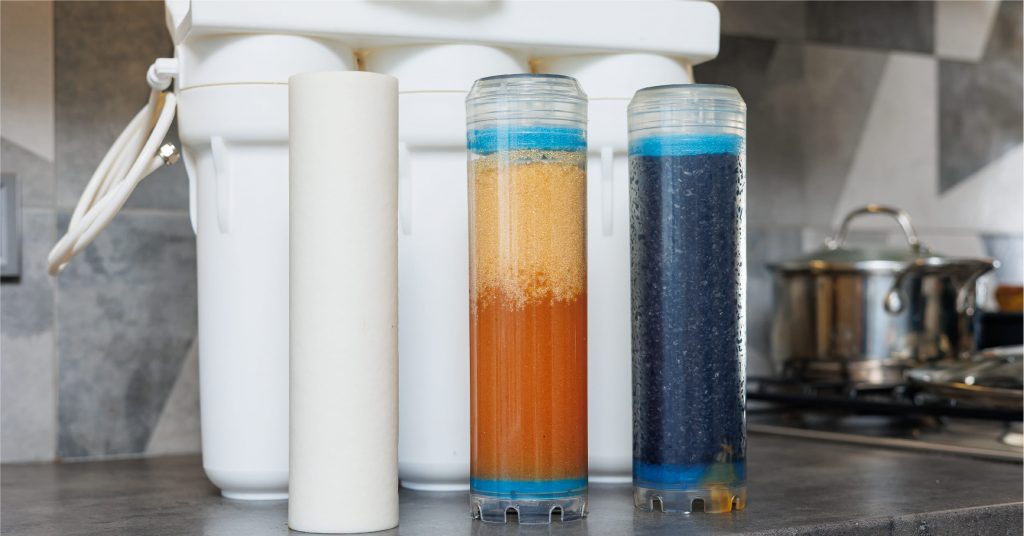Water treatment is a critical process for ensuring safe and clean water, especially in a country like Indonesia, where diverse water sources and varying quality standards pose significant challenges. One essential tool in water treatment systems is the multimedia filter. Widely used for its efficiency and reliability, the multimedia filter plays a vital role in removing impurities and enhancing water quality.
This blog will explore what a multimedia filter is, its role in water treatment, and the benefits of using a multimedia filter in Indonesia’s water treatment processes.
What is a Multimedia Filter?
A multimedia filter is a water treatment device designed to remove suspended solids, sediment, and other impurities from water. Unlike single-media filters that use one type of material, a multimedia filter employs multiple layers of filtration media with varying densities and sizes. This design allows for more effective filtration and higher flow rates compared to traditional sand filters.
Common layers in a multimedia filter include:
- Anthracite: A lightweight material that traps larger particles.
- Sand: A medium-density layer that captures finer particles.
- Gravel: The heaviest layer, providing structural support and filtering smaller debris.
Multimedia Filters in Water Treatment
Multimedia filters are widely used in water treatment systems to enhance water quality by removing particulates and impurities. Here’s how a multimedia filter water treatment process works:
- Pre-Filtration: Raw water enters the multimedia filter, where the top layer (anthracite) captures larger particles such as dirt, leaves, and debris.
- Fine Filtration: The middle layer (sand) traps smaller particles, including fine sediment and organic matter.
- Final Filtration: The bottom layer (gravel) captures the smallest impurities and prevents them from passing through the system.
- Backwashing: Over time, the filter media becomes clogged with trapped particles. Backwashing is performed to clean the filter and restore its efficiency.
Benefits of Using a Multimedia Filter in Indonesia
- Enhanced Filtration Efficiency:
Multimedia filters offer superior filtration compared to single-media filters. Their layered design allows for the removal of particles as small as 10 microns, ensuring clean and clear water. - Increased Flow Rates:
The arrangement of media in descending density enables faster water flow without compromising filtration quality. This is particularly beneficial for high-demand applications in Indonesia’s residential, commercial, and industrial sectors. - Versatility:
Multimedia filters are suitable for various water sources, including river water, groundwater, and seawater. This adaptability makes them an ideal choice for Indonesia’s diverse water treatment needs. - Improved Water Quality:
By removing suspended solids, turbidity, and sediment, multimedia filters enhance water clarity and reduce the burden on downstream treatment processes, such as reverse osmosis or UV disinfection. - Cost-Effectiveness:
Multimedia filters require minimal maintenance and have a long lifespan, making them a cost-effective solution for water treatment. Additionally, their efficient filtration reduces the frequency of maintenance in subsequent systems, saving operational costs. - Environmental Benefits:
By improving water quality at the initial stages of treatment, multimedia filters minimize the need for chemical treatments, reducing environmental impact. This aligns with Indonesia’s goals for sustainable development and resource conservation. - Durability and Reliability:
Designed to withstand high-pressure conditions, multimedia filters are durable and reliable, ensuring consistent performance even in demanding environments.
Applications of Multimedia Filters in Indonesia
- Municipal Water Treatment:
Multimedia filters are used to treat water in municipal plants, ensuring safe drinking water for communities across Indonesia. - Industrial Processes:
Industries such as food and beverage, pharmaceuticals, and electronics rely on multimedia filters to remove impurities that could affect product quality or damage equipment. - Agricultural Irrigation:
Multimedia filters help provide clean water for irrigation, improving crop yields and protecting soil health. - Hospitality Sector:
Hotels and resorts use multimedia filters to treat water for swimming pools, spas, and drinking purposes, enhancing guest experiences. - Desalination Pre-Treatment:
Multimedia filters are an essential pre-treatment step in desalination plants, protecting reverse osmosis membranes from fouling and damage.
Ion Exchange: Leading Multimedia Filter Solutions in Indonesia
The INDION NG series of auto filters, including the NGMF deep bed filters, are designed for industrial and commercial applications with superior filtration capabilities. These filters use specially graded sand media for deep bed filtration, allowing them to handle feed water with up to 25 ppm TSS at nearly three times the surface velocity of conventional sand filters. The treated water from these filters contains less than 5 ppm TSS, ensuring high-quality results.
Key features include an aesthetically designed, lightweight, and easy-to-install structure. Each unit is preassembled and tested before shipment for seamless setup. The filters are primarily constructed from plastic materials, with the pressure vessel made from fiber-reinforced plastic (FRP) and the pipes from polyvinyl chloride (PVC), making them durable and efficient for long-term use.
Conclusion
The role of multimedia filters in water treatment is indispensable in ensuring clean, clear, and contaminant-free water for diverse applications in Indonesia. By leveraging multiple layers of filter media, multimedia filters provide superior filtration performance, making them a reliable and cost-effective solution for water treatment challenges.
Connect with the experts at Ion Exchange to learn more about multimedia filters and how they can enhance your water treatment processes.


